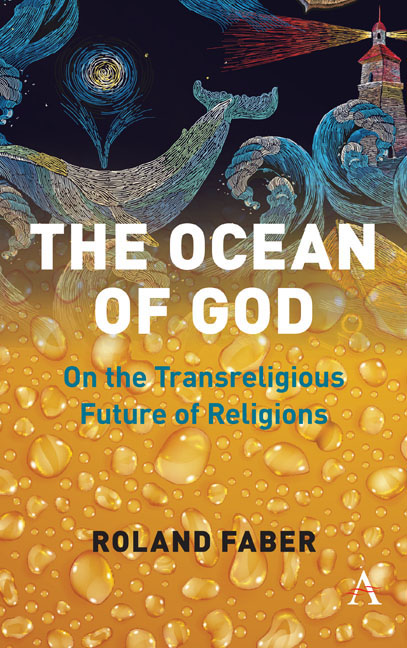Book contents
- Frontmatter
- Dedication
- Contents
- Introduction
- Part I Paradigms of Unity and Plurality
- Part II Negotiations of Multiplicity
- Part III Transreligious Horizons
- Chapter Eleven The Transreligious Discourse
- Chapter Twelve Other Religions: From Coinherence to Coinhabitation
- Chapter Thirteen The Earth and Other Worlds: A Story of Cosmic Magnitude
- Chapter Fourteen The Future of Religions
- Chapter Fifteen One with All Religions
- Glossary
- References
- Index
Chapter Thirteen - The Earth and Other Worlds: A Story of Cosmic Magnitude
from Part III - Transreligious Horizons
Published online by Cambridge University Press: 09 July 2019
- Frontmatter
- Dedication
- Contents
- Introduction
- Part I Paradigms of Unity and Plurality
- Part II Negotiations of Multiplicity
- Part III Transreligious Horizons
- Chapter Eleven The Transreligious Discourse
- Chapter Twelve Other Religions: From Coinherence to Coinhabitation
- Chapter Thirteen The Earth and Other Worlds: A Story of Cosmic Magnitude
- Chapter Fourteen The Future of Religions
- Chapter Fifteen One with All Religions
- Glossary
- References
- Index
Summary
The billowing ocean of Whose abounding grace hath flooded all creation, in such wise that the waves thereof have cast upon the sands of this visible world their shining pearls.
— ‘Abdu'l-BaháThe transreligious mystery of the unity and diversity reveals its true magnitude when we situate the religious universes of discourse into the intriguing horizon of the evolution of humanity on this planet and, beyond Earth, the immensity of universe itself. These are not unrelated expansions. In Whitehead's organismic philosophy, both the ecological and the interstellar horizon for determining the place of humanity in the cosmos and on Earth intersect intensely. As organisms are porous, but stabilized forms of processes of events, they have their becoming and they are interrelated. Every organism is constituted by other organisms, internally or externally, micro-or macrocosmically, ecologically or universally, and is, simultaneously, effecting other organisms. Every existent being is some kind of organism in becoming and in interconnection with others. Every event constitutes itself through temporal relationships to past organisms from which it gathers itself and to the evolution of which it, in its self-transcending future, adds itself; and no organism persists without spatial differentiations of its member processes and environments that have the patience to let them happen. The cosmos is a nested organization of organisms and environments in which every environment harbors the organisms that it can carry and every environment is but another organism within a wider or deeper environment in which it is embedded and by which it is sustained. Since all organisms are in becoming, so also are all environments (as their difference is only a matter of perspective). And since becoming also means transience, change, decline and perishing, evernew organisms and environments emerge and disappear in infinite rhythms, oscillations and revolutions that, determined by the mutual immanence of these organisms and environments in their creative and destructive moves in resonance with one another, span the space-time fabric of the cosmos, or a cosmos. In fact, since this is an infinite and indefinite process, Whitehead does not assume any beginning or end of these revolutions and oscillations (in themselves). Rather, we can either expect a series of cosmic epochs, in themselves relatively consistently interrelated, but different from other cosmic epochs of unimaginable patterns of such an organization, or a multiverse of such relatively independent and diverging cosmoi.
- Type
- Chapter
- Information
- The Ocean of GodOn the Transreligious Future of Religions, pp. 153 - 168Publisher: Anthem PressPrint publication year: 2019



